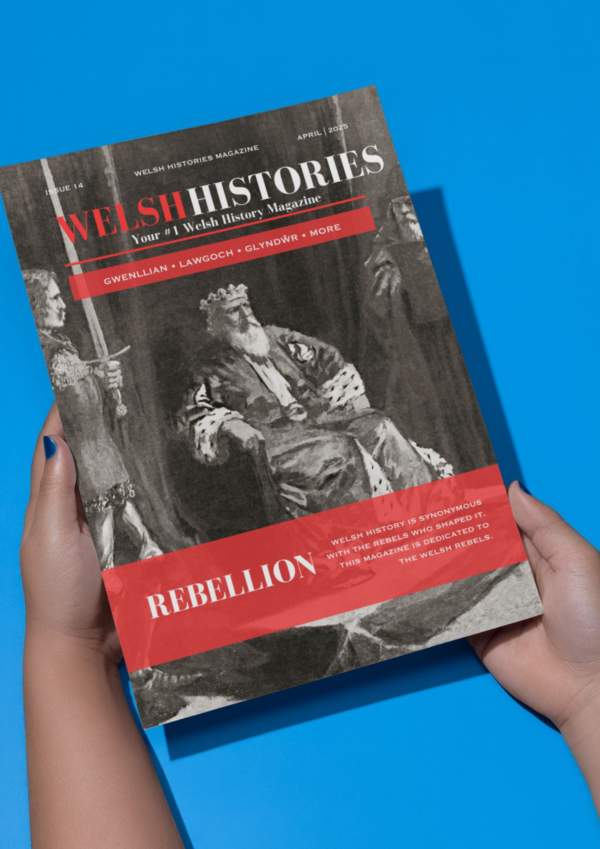Your basket is currently empty!

“Why is Welsh Different to English When We’re Neighbours?” Woman Explains the Difference
Sophia Galer, a Tik-Toker and a journalist, raises the question—“Why is Welsh different to English when we’re literally neighbours?!” She attempts to offer a comparison between the two languages to her viewers.
“Let’s take Italian and Spanish for example. They’re not neighbours who share a physical border. But there is so much more mutual intelligibility between them than there is between English and Welsh.”
The reason behind her question, which she explains, “I’m thinking this because I’m in Cardiff right now and I’m mind blown by all the cool Welsh I’m seeing and how I understand absolutely none of it.”

”Spanish and Italian sound alike because they are part of the same language family. They are both Romance languages (meaning, to speak in Roman). Are English and Welsh part of the same language family? Absolutely not!”
She specifies, “Welsh is a Celtic language. English is a West Germanic language. Welsh’s pals would be Cornish or Breton. English’s pals would be (or should I say ‘siblings’) would be German or Dutch.”
“By virtue of many things, including geography, Welsh got to be a little bit protected. Borders like Offa’s Dyke have helped demarcate Cymru.”
“There is a reason English is full of so much Latin, German, or French. Because they got super invaded by the Romans, the Anglo-Saxons, and the Normans.”
READ NEXT
“Welsh is Beautiful!” The Launch of Fantasy Video Game Based on Welsh Folklore
What Impact Did Tudors Have on Cymru?
Cymru’s Worst Ever Tornado Tragedy from Over a Century Ago that Many Have Forgotten Today
“When we think about the influence, English may have had on Welsh the influence that English culture has had on Welsh culture. It begins properly in the 1500s when Welsh citizens began to be considered as British citizens. So what has happened is that the influence of English has worked to sort of eliminate a lot of bilingualism in Welsh, even monolingualism in Welsh rather than influence the Welsh language in the way that Norman French influenced English. Does that make sense?” she asks her viewers.
People had mixed reactions to her opinion, by elaborating on the topic. One said, “Within living memory, attempts were made to kill the language. The Welsh knot was worn in schools by pupils caught speaking Welsh instead of English, followed by the cane at the end of the day for the last pupil wearing it.”
Another said, “Cymraeg has (I think) some 16,000 words in it derived from Latin: eglwys (church) ffenestr (window) etc. Thanks to the Roman occupation of a then Brythonic (early Cymraeg) speaking England. Cymraeg was banned from legal and financial spheres by (ironically) Henry VIII and from education in the mid 19th century. Children were beaten if they spoke it at school. But despite this with a comparatively early translation of the Bible and the non-conformist chapels the language is still spoken by about 1 in 5 of the population.🏴👍”
Share us your thoughts on [email protected]
Bestsellers
More from Welsh Histories
Welsh Histories is a Welsh history celebrating platform which looks to promote all aspects of Welsh history. Though we focus predominantly on native Welsh history, we do also share the non-native aspects from time to time. You can follow us on Facebook; Instagram or Twitter for more. A reader? We also have our very own Welsh Histories Shop where we sell our Welsh Histories Magazine. Diolch yn fawr iawn and keep enjoying Welsh Histories.
Sally is a proud wife of a Welshman, editor & writer of Welsh Histories. She’s all about stories—that shout ‘anything Welsh.’ Drop her an email if you have an advice, insight, experience, or a story to share.





Comments
2 responses to ““Why is Welsh Different to English When We’re Neighbours?” Woman Explains the Difference”
[…] “Why is Welsh Different to English When We’re Neighbours?” Woman Explains the Difference […]
[…] “Why is Welsh Different to English When We’re Neighbours?” Woman Explains the Difference […]